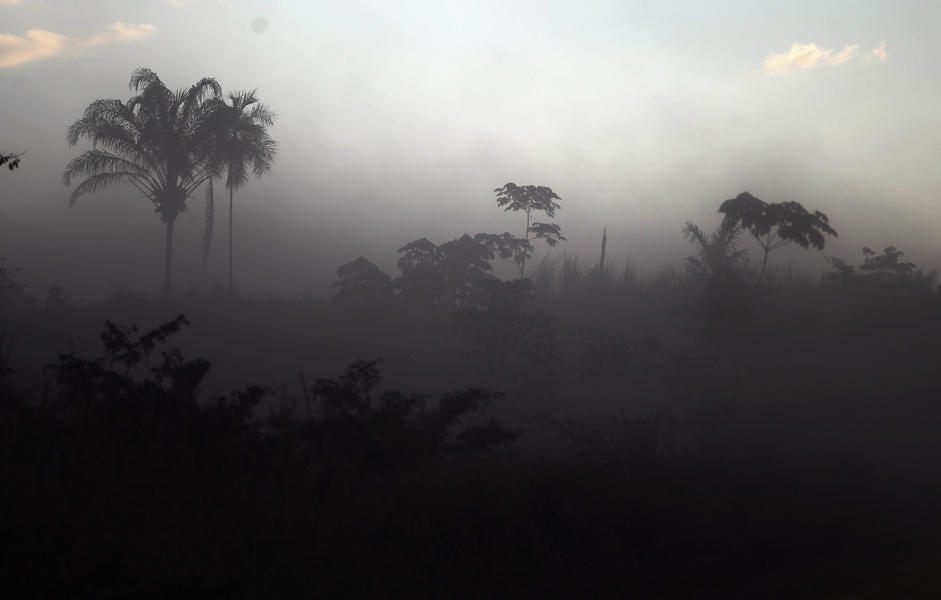Previously uncontacted tribe returns to rainforest with flu


A free daily email with the biggest news stories of the day – and the best features from TheWeek.com
You are now subscribed
Your newsletter sign-up was successful
An Amazon tribe thought to be lost has reappeared — and some of its members have contracted influenza.
Brazil's government department FUNAI, which oversees the affairs of indigenous peoples, recently announced that at least seven members of a long-isolated Amazon tribe are infected with the flu after contact with the outside world. Researchers fear those with influenza will spread the disease to other tribe members who aren't immunized and haven't built up any natural immunity due to their isolation. FUNAI announced that a government-sponsored medical team treated the infected tribe members, but their return home is alarming for the others.
"We can only hope that [the FUNAI team members] were able to give out treatment before the sickness was spread to the rest of the tribe in the forest," Chris Fagan, executive director at the Upper Amazon Conservancy in Jackson, Wyoming, told Science magazine. "Only time will tell if they reacted quickly enough to divert a catastrophic epidemic."
The Week
Escape your echo chamber. Get the facts behind the news, plus analysis from multiple perspectives.

Sign up for The Week's Free Newsletters
From our morning news briefing to a weekly Good News Newsletter, get the best of The Week delivered directly to your inbox.
From our morning news briefing to a weekly Good News Newsletter, get the best of The Week delivered directly to your inbox.
Last month, some of the tribe's members left the forest of the Upper Envira River in Brazil, presumably to escape from illegal loggers and cocaine traffickers in a Peruvian park, Science reports. Their emergence marked the first time in recent history that an uncontacted tribe left its home to visit a settled population, The Independent reports. According to FUNAI's announcement, the group claimed to have been attacked by outsiders, and the Xinane River village "lies along a major route used by cocaine smugglers."
The Rainforest Rescue Coalition speculates that the tribe may be part of a group of Chitonahua people. Researchers estimate there could be as many as 4,000 uncontacted people in the region, making the spread of influenza extremely worrisome. Survival International is currently urging the Peruvian and Brazilian governments to protect the uncontacted tribes.
A free daily email with the biggest news stories of the day – and the best features from TheWeek.com
Meghan DeMaria is a staff writer at TheWeek.com. She has previously worked for USA Today and Marie Claire.
-
 Political cartoons for February 15
Political cartoons for February 15Cartoons Sunday's political cartoons include political ventriloquism, Europe in the middle, and more
-
 The broken water companies failing England and Wales
The broken water companies failing England and WalesExplainer With rising bills, deteriorating river health and a lack of investment, regulators face an uphill battle to stabilise the industry
-
 A thrilling foodie city in northern Japan
A thrilling foodie city in northern JapanThe Week Recommends The food scene here is ‘unspoilt’ and ‘fun’
-
 Nobody seems surprised Wagner's Prigozhin died under suspicious circumstances
Nobody seems surprised Wagner's Prigozhin died under suspicious circumstancesSpeed Read
-
 Western mountain climbers allegedly left Pakistani porter to die on K2
Western mountain climbers allegedly left Pakistani porter to die on K2Speed Read
-
 'Circular saw blades' divide controversial Rio Grande buoys installed by Texas governor
'Circular saw blades' divide controversial Rio Grande buoys installed by Texas governorSpeed Read
-
 Los Angeles city workers stage 1-day walkout over labor conditions
Los Angeles city workers stage 1-day walkout over labor conditionsSpeed Read
-
 Mega Millions jackpot climbs to an estimated $1.55 billion
Mega Millions jackpot climbs to an estimated $1.55 billionSpeed Read
-
 Bangladesh dealing with worst dengue fever outbreak on record
Bangladesh dealing with worst dengue fever outbreak on recordSpeed Read
-
 Glacial outburst flooding in Juneau destroys homes
Glacial outburst flooding in Juneau destroys homesSpeed Read
-
 Scotland seeking 'monster hunters' to search for fabled Loch Ness creature
Scotland seeking 'monster hunters' to search for fabled Loch Ness creatureSpeed Read
